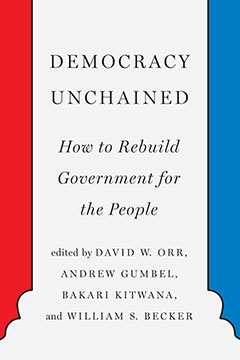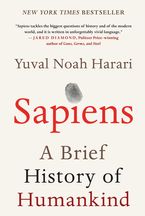I'm slowly sifting through a small pile of books stacked to my left. Alternating between titles each morning, the pile grew recently with the addition of two new books to arrive from Powell's Books in Portland. Here's the opening paragraph from the introduction of one of those.
"Plato thought democracy a preface to tyranny. Aristotle was not much more sanguine. The founders of our republic were wary of it. John Adams always believed that democracies always end in suicide. James Madison believed that with luck democracy in America might last a century. Alex deTocqueville thought it would evolve into majority tyranny. English writer E.M. Forster could give it two cheers. H.L. Menken none at all, believing people incorrigibly stupid. Economist Joseph Schumpeter likewise thought voters became dumber when they entered the political arena. Robert Dahl, perhaps the greatest student of democracy in the twentieth century, described himself as a "pessimist" about its future. Winston Churchill captured our predicament in his oft quoted observation that democracy was the worst form of government except for all the others ever tried. In short, democracy is always a bet that enough people will know enough, care enough,be tolerant enough, and informed enough to participate competently in the conduct of the public business. The United States, a representative democracy is not exempt fro the terms of the wager". (David W. Orr) in Democracy Unchained: How to Rebuild Government for the People (2020, The New Press).

This title is 400 pages of collected essays that emerged from a conference on the topic that David Orr hosted at Oberlin in November 2017. Orr's introduction alone is worth the price of the book he and his three associate editors pulled together. But they have collected the thoughts of 38 distinguished scholars and leaders that I look forward to devouring soon.

This title is 400 pages of collected essays that emerged from a conference on the topic that David Orr hosted at Oberlin in November 2017. Orr's introduction alone is worth the price of the book he and his three associate editors pulled together. But they have collected the thoughts of 38 distinguished scholars and leaders that I look forward to devouring soon.
In the other newest addition to the pile, Call Them by Their True Names: American Crises (and Essays) (2018 Haymarket Press), Rebecca Solnit in her forward notes,
" Precision, accuracy, and clarity matter, as gestures of respect to those to whom you speak; toward the subject, whether it's an individual or the earth itself; toward the historical record. It's also a kind of self-respect; there are many old cultures in which you are, as the saying does, as good as your word. Our Word Is Our Weapon was the title of the compilation of Zapatista Subcomandante Marcos' writings. If your word is unreliable, junk, lies, disposable pitches, you're nothing -- a boy who cried wolf, a windbag, a cheat."


They join the pile of the almost completed Sapiens: A Brief History of Humankind by Yuval Noah Harari (2015, Harper) and Ways to Go Beyond and Why They Work: Seven Spiritual Practices for a Scientific Age, by Rupert Sheldrake (2019, Monkfish Book Publishing Co.). Also in the pile are the half-way read Trading for Good: How Global Trade Can Be Made to Serve People not Money by Christian Felber (2019, Zed Books) and Michael Nagler's, The Third Harmony: Nonviolence and the New Story of Human Nature (2020, Berrett-Koehler).
It's hard to say what they all have in common other that resting in the same space adjacent to my favorite reading spot. Certainly they each have called to me to the point of sharing considerable time in their company of ideas. Harari's work is a work that is truly of mind boggling scope. His writing style is quite airy making his vast leaps to connect elements like flying in open air plane. While I don't concur with all the connections he makes in this erudite effort, he perks up the readers attention to connections not usually considered. Everyone I know who has read it has been duly impressed. The scope is rarely something most of us would ever contemplate. That exercise alone makes the read worthwhile.


Rupert Sheldrake is a British biologist, author of more than ninety technical papers and fourteen books. He has been driven to seek understanding regarding the connections between science and deep consciousness and/or spirituality. In this tome he looks at these connections through seven practices he associates with spirituality - "Spiritual Side of Sports"; "Learning from Animals"; "Fasting"; "Cannabis, Psychedelics, and Spiritual Openings"; "Powers of Prayer"; "Holy Days and Festivals"; and "Cultivating Good Habits, Avoiding Bad Habits, and Being Kind". In each of these he examines what the history and science tell while offering tips on how one might integrate aspects of each into our daily lives regardless of any faith tradition.

Michael Nagler has been one of the leaders in nonviolence education for many decades. We were fortunate to host him once at MSU a couple of decades back. For someone like myself who has read and studied nonviolence, there isn't much new yet to me, but it really reaffirms its practical benefits and possibilities. [Remember I'm only half-way through so I expect more to come]. Given the activism of Black Lives Matter and Sunrise Movement in recent days and months this work is timely in what it can teach all of us wanting to see change in our world.

I've written about Christian Felber a number of times, whose book Change Everything was one of the very best economics book I've read in recent years. Felber sets his sights in this book on how to create a system of trade that would make the achievement of the 2030 Sustainable Development Goals more likely. You don't have to be a number cruncher to enjoy and appreciate this look at the dismal science. Like he did in his earlier work, Felber critiques the dominant global trade policies, but then spends an equal time, if not more [I'm only a little past half-way point] outlining innovative policy options. These are the kinds of ideas we need to get to our policy makers in Washington.

Exposure to the ideas in these collected pages will no doubt shift how I think, and possibly act in ways I can't even imagine. In my more facile moments I might be better able to paint how the ideas in these books interact and nudge us towards some more just, secure, and happy future. That ground doesn't feel very fertile at the moment, but who knows if in the remaining pages, especially of the newly arrived titles, some spark of fresh possibility might appear.
One possibly overlooked connection between these works besides their proximity to my reading space is the publishers.
"The New Press is a nonprofit public interest publisher. New Press books and authors play a crucial role in sparking conversations about the key political and social issues of our day."
"Haymarket Books is a nonprofit, progressive book distributor and publisher, a project of the Center for Economic Research and Social Change. We believe that activists need to take ideas, history, and politics into the many struggles for social justice today."
"Berrett-Koehler is an independent publisher dedicated to an ambitious mission: connecting people and ideas to create a world that works for all. It is the first book publishing company to be both a B corporation(a rigorous certification) and a benefit corporation, which together require us to adhere to highest standards for corporate, social, and environmental performance."
"Zed Books is a platform for marginalized voices across the globe. It is the world's largest publishing collective and world leading example of alternative, non-hierarchical practice."

Michael Nagler has been one of the leaders in nonviolence education for many decades. We were fortunate to host him once at MSU a couple of decades back. For someone like myself who has read and studied nonviolence, there isn't much new yet to me, but it really reaffirms its practical benefits and possibilities. [Remember I'm only half-way through so I expect more to come]. Given the activism of Black Lives Matter and Sunrise Movement in recent days and months this work is timely in what it can teach all of us wanting to see change in our world.

I've written about Christian Felber a number of times, whose book Change Everything was one of the very best economics book I've read in recent years. Felber sets his sights in this book on how to create a system of trade that would make the achievement of the 2030 Sustainable Development Goals more likely. You don't have to be a number cruncher to enjoy and appreciate this look at the dismal science. Like he did in his earlier work, Felber critiques the dominant global trade policies, but then spends an equal time, if not more [I'm only a little past half-way point] outlining innovative policy options. These are the kinds of ideas we need to get to our policy makers in Washington.

Exposure to the ideas in these collected pages will no doubt shift how I think, and possibly act in ways I can't even imagine. In my more facile moments I might be better able to paint how the ideas in these books interact and nudge us towards some more just, secure, and happy future. That ground doesn't feel very fertile at the moment, but who knows if in the remaining pages, especially of the newly arrived titles, some spark of fresh possibility might appear.
One possibly overlooked connection between these works besides their proximity to my reading space is the publishers.
"The New Press is a nonprofit public interest publisher. New Press books and authors play a crucial role in sparking conversations about the key political and social issues of our day."
"Haymarket Books is a nonprofit, progressive book distributor and publisher, a project of the Center for Economic Research and Social Change. We believe that activists need to take ideas, history, and politics into the many struggles for social justice today."
"Berrett-Koehler is an independent publisher dedicated to an ambitious mission: connecting people and ideas to create a world that works for all. It is the first book publishing company to be both a B corporation(a rigorous certification) and a benefit corporation, which together require us to adhere to highest standards for corporate, social, and environmental performance."
"Zed Books is a platform for marginalized voices across the globe. It is the world's largest publishing collective and world leading example of alternative, non-hierarchical practice."

Might I suggest Dye & Zeigler's work: The Irony of Democracy. Their approach illuminates the role of elites in government function(ing).
ReplyDelete